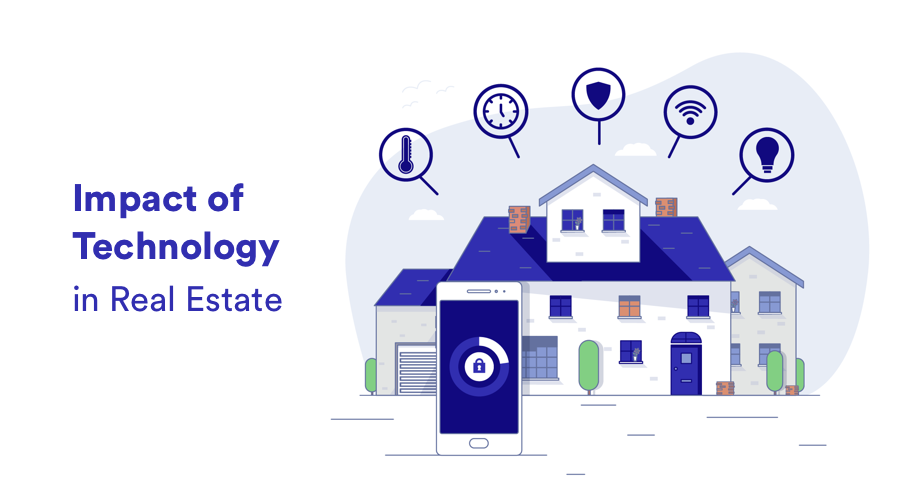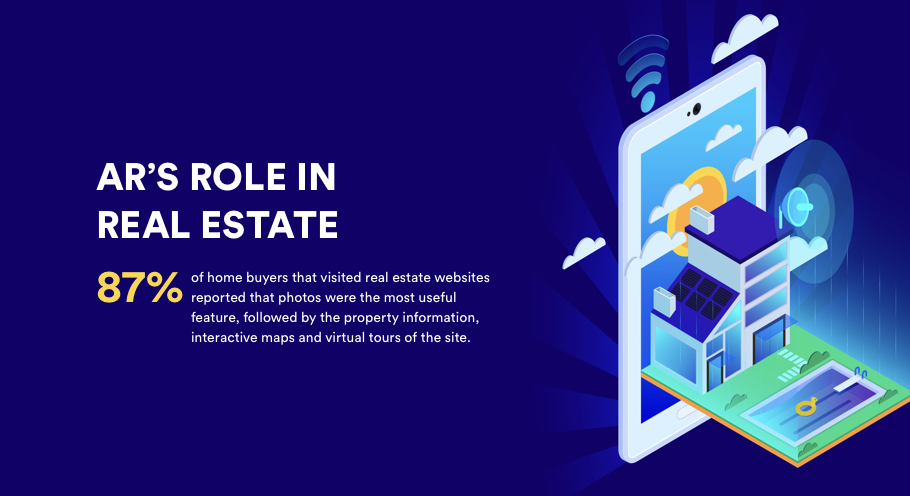Residential and commercial real estate leaders in NewYork, such as Corcoran, currently use data visualization to create a new business model based on consumer reality. Consumers basic real estate decisions start from digital touch points, and the technological raw material is just waiting to be used. Here are a few points on how the real estate industry is transforming itself :
THE IMPACT OF LOCATION IS UNDERGOING CHANGE
When viewing the technology’s disruption in the real estate industry, it’s worth noting the way in which the fundamental concept that is location is changing for many residential buyers. At present hyperconnected marketplace means that people no longer feel the need to live near shopping centers; with just one click on their mobile device or computer, they can order products from anywhere. The number of people who work remotely from their home has increased by 30 percent in just the last decade and is expected to continue growing. The outcome of these trends is that many people no longer have to consider the daily commute to the workplace as a factor in their search for the perfect house. Similarly, the need for physical office space is also decreasing year by year as well, as platforms like the LiquidSpace step in to maximize businesses access to short- or medium-term workspaces as per their requirement.
THE THRILL OF AUGMENTED REALITY
Augmented reality (“AR”) superimposes the computer-generated input like sound, video or graphics into a live view of the actual physical world. It’s like a smart window onto the reality: a way for users to see what’s actually in front of them, along with that extra information layered on top of that real-world view.
Last year, the biggest AR experience in the history of technology was Pokemon Go, which added a whole new meaning to the importance of location. Restaurants, bars, and other establishments benefited a lot from the Pokemon Go craze by dropping lure modules at their locations and providing them charging ports for those playing the game. Some businesses even had a monthly marketing budget for Pokemon Go, as these lure modules aren’t for free or abundant in the game.
The Question here is What does Pokemon Go have to do with real estate? The adoption of the app, which peaked around 45 million daily active users, shows the tremendous level of excitement that people feel for this new type of technology and Users of the app traveled to places which they never had previously thought of visiting, just to catch their favorite Pokemon specific to that region. This was all due to the best implementation of augmented reality (AR).
AR’S ROLE IN REAL ESTATE
The enhancement — in real time — of a consumer’s perception of reality can help home buyers tremendously. 87 % of home buyers that visited real estate websites reported that photos were the most useful feature, followed by the property information, interactive maps and virtual tours of the site. Zillow began capitalizing on the consumer interest with video and 3D tours last year and they still continue to do so. According to a report from Urban Land Institute, experts expect $2.6 billion in real estate applications by the end of the year 2025. Service Providers like Augmented Pixels laid out the exciting possibilities available to the real estate industry through AR, including the magical on-screen home walkthroughs in which views can be shifted from 2D to 3D, and sections of the home cut away for better viewing. Other amazing features include the ability to “repaint” the house in a different color, view it with the buyer’s choice of furniture already in place, or to view the real-time stats superimposed into the property video.
THE GREATEST OPPORTUNITY IS IN COMMERCIAL REAL ESTATE
While there have been some great digital innovations taking place in the residential real estate, the commercial side of the market has been quite slow to embrace digital. TechCrunch has said that the commercial real estate market is “antiquated and grossly underdeveloped.” This sector also has more data than the residential market, providing intensive opportunities for agents to introduce software for visualizing and explaining details. of the property. The powerful proliferation of online funding sources, through the real estate crowdfunding and fintech apps, has now enabled new opportunities for agents to work with buyers on creative financing options.
REDEFINING THE ROLE OF THE REAL ESTATE AGENT
One marketing challenge which has always existed for the real estate agents, especially in the residential sector is to explain why their services are a good investment for sellers. Since it is always possible for buyers and sellers to conduct transactions without involving an agent at all, the real estate industry has traditionally focused on the unique benefits which they offer. One of these benefits is the option of Multiple Listing Services, which is a private network of listings which can be only accessed by the real estate agents. With portals like Zillow and Trulia, every potential home buyer has access to all the listings in an area. It impacts the major selling point for the services of real estate agents, but with the growing availability of other technologies, it threatens to eliminate agents from the scene altogether.
You will find this article useful: Location Based Technology for Mobile Apps Beacons vs Gps vs Wifi
AGENTS LEVERAGE DIGITAL TO PERSONALIZE THEIR SERVICES
Mobile access opens the door for agents and brokers as it does for home buyers. Now the agents don’t have to spend a lot of time in their offices. Instead, they are now free to go out in the field meeting with clients. If they need to have face-to-face meetings with the parties for putting together a commercial transaction, they can now accommodate their clients’ schedules far more easily as they once could. More hands-on client time is still required, especially at both ends of the buyer spectrum: First-time buyers still need support as they go through a stressful and complex transaction, while high-end luxury clients look for a personalized concierge experience.
MEDIA CHANNELS EXTEND AGENTS’ REACH
Real estate world is the domain of people-oriented professionals, and social media platforms are a perfect fit for this industry. There was a time when the neighborhood agent was limited to sending out holiday cards or hanging brochures on doorknobs, now thanks to social media which has allowed him to have an ongoing connection with potential clients. Video content is being used by various real estate agents for far more than house tours, and many of them are providing informational videos with high production values. Periscope allows live streaming across multiple platforms where the video of an open house can be shared with more people.
The flood of data that’s now available to agents can be effectively packaged and shared with clients in the form of educational content. Real Estate Giant Corcoran shows its mastery of this channel by offering its online magazine, Inhabit. Articles in the magazine are delivered in a clean, open format on topics as broad as interactive art installations and artist-designed pianos. A new depth of connection can be started in this way, creating a sense of commonality and trust between the potential buyer and the seller that is the real estate agency.
Technology-enabled innovation in the real estate industry is the future— those who are eager to transform their way of doing business by embracing technological capabilities, the possibilities are almost unlimited. Get your Mobile App today, Connect with us for a NO-OBLIGATION consultation: [email protected]
 November 20, 2018
November 20, 2018








